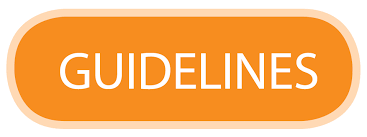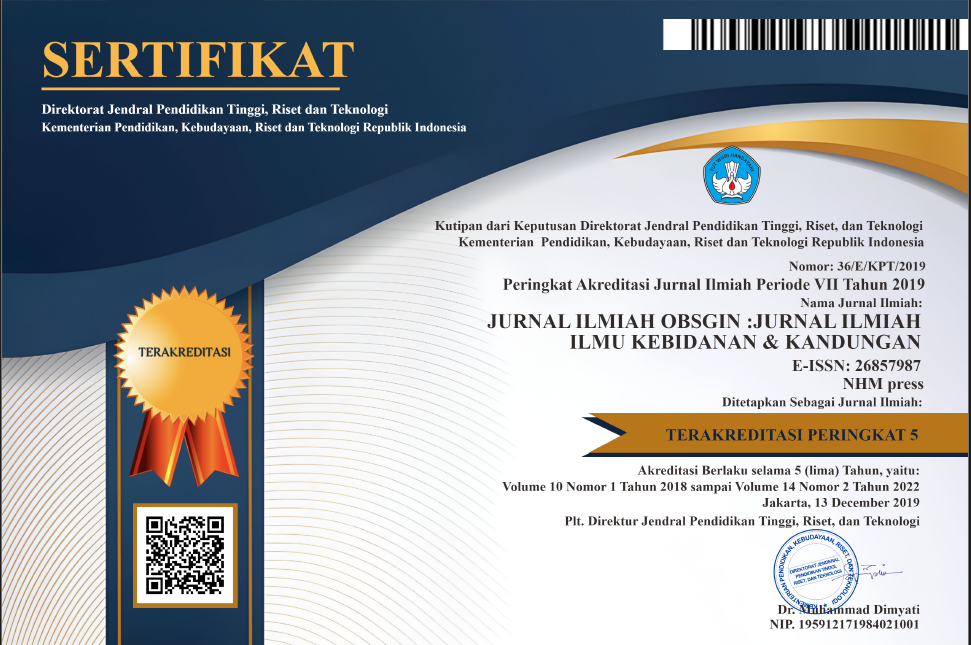Intervensi Manajemen Perawatan Mandiri Penderita Stroke: Systematic Review
Abstract
Stroke is the leading cause of death and disability globally. A number of studies have contributed to the knowledge base regarding self-management interventions among chronic disease patients, but there have been few studies for stroke patients. Therefore, it is necessary to analyze self-management interventions in stroke patients. This systematic review aims to identify and describe experimental studies related to self-management interventions for stroke survivors. This study follows the guidelines of the Preferred Reporting Item Systematic Review and Meta Analysis (PRISMA). Databases used include PubMed, Web of Science, Sciencedirect, Cochrane Central Register of Controlled Trials, and Willey online library. The search was conducted on articles published from 2000 to 2022. Two independent reviewers were asked to assess potential articles, and included data extraction for articles that met the criteria. Twenty one articles met the inclusion criteria. The most widely discussed study design is the comparison of self-management interventions with usual care. Physical activity was the most common topic of intervention, and the main intervention was delivered face-to-face. Interventions are carried out by various providers, including nurses as the most common provider group. Symptom management is the outcome domain most frequently reported as improving or improving. Self-care management interventions are very beneficial for the management of stroke patient symptoms. The duration of the intervention is at least 6-12 months. Various intervention topics, delivery methods, and service providers are used to a large extent to meet the various needs of stroke patients. Physical activity is the most popular topic in relevant studies.
References
Burton, C., & Gibbon, B. (2005). Expanding the role of the stroke nurse: a pragmatic clinical trial. Journal of Advanced Nursing, 52(6), 640–650.
Chau, J. P. C., Lo, S. H. S., Lee, V. W. Y., Choi, K. C., Shum, E. W. C., Hung, Z. S. S., Mok, V. C. T., Siow, E. K. C., Ching, J. Y. L., & Lam, S. K. Y. (2019). Effectiveness and cost-effectiveness of a virtual multidisciplinary stroke care clinic for community-dwelling stroke survivors and caregivers: a randomised controlled trial protocol. BMJ Open, 9(5), e026500.
Chen, Y., Wright, N., Guo, Y., Turnbull, I., Kartsonaki, C., Yang, L., Bian, Z., Pei, P., Pan, D., & Zhang, Y. (2020). Mortality and recurrent vascular events after first incident stroke: a 9-year community-based study of 0• 5 million Chinese adults. The Lancet Global Health, 8(4), e580–e590.
Debussche, X., Besançon, S., Balcou-Debussche, M., Ferdynus, C., Delisle, H., Huiart, L., & Sidibé, A. T. (2018). Structured peer-led diabetes self-management and support in a low-income country: the ST2EP randomised controlled trial in Mali. PLoS One, 13(1), e0191262.
Donald, M., Kahlon, B. K., Beanlands, H., Straus, S., Ronksley, P., Herrington, G., Tong, A., Grill, A., Waldvogel, B., & Large, C. A. (2018). Self-management interventions for adults with chronic kidney disease: a scoping review. BMJ Open, 8(3), e019814.
Fryer, C. E., Luker, J. A., McDonnell, M. N., & Hillier, S. L. (2016). Self management programmes for quality of life in people with stroke. Cochrane Database of Systematic Reviews, 8.
Harwood, M., Weatherall, M., Talemaitoga, A., Barber, P. A., Gommans, J., Taylor, W., McPherson, K., & McNaughton, H. (2012). Taking charge after stroke: promoting self-directed rehabilitation to improve quality of life–a randomized controlled trial. Clinical Rehabilitation, 26(6), 493–501.
Kripalani, S., Yao, X., & Haynes, R. B. (2007). Interventions to enhance medication adherence in chronic medical conditions: a systematic review. Archives of Internal Medicine, 167(6), 540–549.
Kristine Stage Pedersen, S., Lillelund Sørensen, S., Holm Stabel, H., Brunner, I., & Pallesen, H. (2020). Effect of self-management support for elderly people post-stroke: a systematic review. Geriatrics, 5(2), 38. DOI:10.3390/geriatrics5020038
Kronish, I. M., Goldfinger, J. Z., Negron, R., Fei, K., Tuhrim, S., Arniella, G., & Horowitz, C. R. (2014). Effect of peer education on stroke prevention: the prevent recurrence of all inner-city strokes through education randomized controlled trial. Stroke, 45(11), 3330–3336.
Lo, S. H. S., Chang, A. M., & Chau, J. P. C. (2018). Stroke self-management support improves survivors’ self-efficacy and outcome expectation of self-management behaviors. Stroke, 49(3), 758–760.
Nott, M., Wiseman, L., Seymour, T., Pike, S., Cuming, T., & Wall, G. (2021). Stroke self-management and the role of self-efficacy. Disability and Rehabilitation, 43(10), 1410–1419.
Plow, M., Mangal, S., Geither, K., & Golding, M. (2016). A scoping review of tailored self-management interventions among adults with mobility impairing neurological and musculoskeletal conditions. Frontiers in Public Health, 4, 165.
Ruksakulpiwat, S., Liu, Z., Yue, S., & Fan, Y. (2020). The association among medication beliefs, perception of illness and medication adherence in ischemic stroke patients: a cross-sectional study in China. Patient Preference and Adherence, 235–247.
Saini, V., Guada, L., & Yavagal, D. R. (2021). Global epidemiology of stroke and access to acute ischemic stroke interventions. Neurology, 97(20 Supplement 2), S6–S16.
Salinas, J., Sprinkhuizen, S. M., Ackerson, T., Bernhardt, J., Davie, C., George, M. G., Gething, S., Kelly, A. G., Lindsay, P., & Liu, L. (2016). An international standard set of patient-centered outcome measures after stroke. Stroke, 47(1), 180–186.
Sattoe, J. N. T., Bal, M. I., Roelofs, P. D. D. M., Bal, R., Miedema, H. S., & van Staa, A. (2015). Self-management interventions for young people with chronic conditions: A systematic overview. Patient Education and Counseling, 98(6), 704–715.
Schneider, M. A., & Howard, K. A. (2017). Using technology to enhance discharge teaching and improve coping for patients after stroke. Journal of Neuroscience Nursing, 49(3), 152–156.
Serugunda, H. M., Namatovu, H. K., Muwoge, B. S., & Kimbugwe, N. (2022). Examining the Extent to which Elements of the Chronic Care Model Address Barriers to effective Self-Management of Patients with Multiple Chronic Conditions.
Stephani, V., Opoku, D., & Beran, D. (2018). Self-management of diabetes in Sub-Saharan Africa: a systematic review. BMC Public Health, 18(1), 1–11.
Sukmadi, A., & Siagian, H. J. (2021). Terapi Akupresur Menurunkan Tekanan Darah Pasien Hipertensi. Jurnal Kesehatan, 9(2), 109–114.
Susanty, S., Sukurni, S., & Siagian, H. J. (2022). Analisis Bibliometrik Penelitian Pengobatan Herbal Penderita Hipertensi di Indonesia Menggunakan VOS-Viewer. Jurnal Keperawatan Silampari, 5(2), 764–771. DOI:10.31539/jks.v5i2.3448
The World Bank. (2021). World Bank Country and Lending Groups. 21 July 2021. https://datahelpdesk.worldbank.org/knowledgebase/articles/906519-world-bank-country-and-lending-groups
van Hooft, S. M., Been‐Dahmen, J. M. J., Ista, E., van Staa, A., & Boeije, H. R. (2017). A realist review: What do nurse‐led self‐management interventions achieve for outpatients with a chronic condition? Journal of Advanced Nursing, 73(6), 1255–1271.
Wafa, H. A., Wolfe, C. D. A., Emmett, E., Roth, G. A., Johnson, C. O., & Wang, Y. (2020). Burden of stroke in Europe: thirty-year projections of incidence, prevalence, deaths, and disability-adjusted life years. Stroke, 51(8), 2418–2427.
Wang, T.-C., Tsai, A. C., Wang, J.-Y., Lin, Y.-T., Lin, K.-L., Chen, J. J., Lin, B. Y., & Lin, T. C. (2015). Caregiver-mediated intervention can improve physical functional recovery of patients with chronic stroke: a randomized controlled trial. Neurorehabilitation and Neural Repair, 29(1), 3–12.
Warner, G., Packer, T., Villeneuve, M., Audulv, A., & Versnel, J. (2015). A systematic review of the effectiveness of stroke self-management programs for improving function and participation outcomes: self-management programs for stroke survivors. Disability and Rehabilitation, 37(23), 2141–2163.











